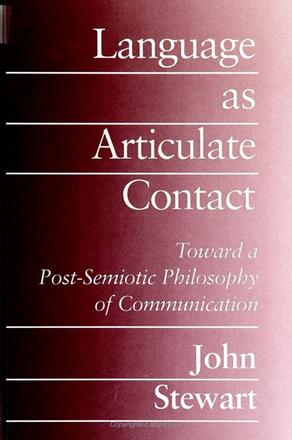
Language as Articulate Contact
Toward a Post-Semiotic Philosophy of Communication
This book critiques semiotic accounts of the nature of language and sets forth a dialogic alternative.
Description
This book analyzes the prominent view that language is basically a system of signs and symbols; outlines an alternative that builds on aspects of the philosophies of Heidegger, Gadamer, Buber, and Bakhtin; and employs this alternative to criticize accounts of language developed by V. N. Volosinov, Kenneth Burke, and Calvin O. Schrag. From the perspective of communication theory, this book extends some features of the postmodern critique of representationalism to develop a post-semiotic account of the nature of language as dialogic.
John Stewart is Associate Professor of Speech Communication at the University of Washington.
Reviews
"I believe that the question this book addresses--whether language should be considered as symbolic or constitutive--is THE central questions for communication scholars. As the first extensive examination of this question to be undertaken by a scholar in this discipline, this book will generate significant thinking. Communication textbooks almost without exception assume language to be symbolic, thereby fatally limiting our understanding of what humans do when we communicate. A book like this, by an author of Stewart's standing, can change that. " -- Bruce Hyde, St. Cloud State University
"This book addresses a fundamental assumption about language, the symbol model, and shows it to be problematical in serious ways. Stewart provides an alternative, positive case: he calls for a profound shift in our commonsense views of language, to see language first and foremost as a social activity in which persons partake and which constitutes our realities. " -- Richard Buttny, Syracuse University